Schedule | Program of Events
The information provided below features an overview and descriptions of the program, as well as a map of the location where the concurrent sessions will take place.
Event Location
FAU’s Jupiter Campus ( click here for the campus map ) will host the next Teaching with Technology Showcase on Friday, April 3rd, 2020, at the Student Resources (SR) building.The event will take place at the following locations:

Program Categories
FAU faculty has vast experience using technology in their classrooms. This year, the selected categories are:

|
Transforming the Student Experience
The digital student experience is evolving to support active learners. This track explores the ways in which higher education has successfully responded to the changing expectations of learners. Sessions in this track examine how technology is used to enhance active learning in the face-to-face and online classroom, and the strategies to take students beyond passive listening. |
|
|
|

|
Innovative Ideas for Using Technology
This track encourages discussions around new ideas, interesting interventions, wild successes, and/or educational failures from which to learn from when implementing different technology tools into the classroom. |
|
|
|

|
Using Technology for Collaboration and Partnering
The sessions in this track explore how technology can be used to encourage collaboration between students, teachers, and others inside and outside the classroom, as well as among different departments of the university, and even outside the institution. |
Registration, Breakfast, & Welcome | 8:30 - 9:00 a.m.
-
SR Lobby
Registration/Check-In & Welcome
Office of Information TechnologyWelcome remarks by Jason Ball, Associate Provost and Chief Information Officer

Jason Ball is Associate Provost and Chief Information Officer at FAU. He provides vision, leadership, strategic planning, and coordination of information technology, including instructional technologies, networking, telecommunications, information security, and enterprise applications and services throughout FAU’s multi-campus environment. He also oversees the Institutional Effectiveness and Analysis team, which serves as the official data analysis and reporting team for the University. Jason joined FAU after serving as Assistant Vice President and Director of Information Technology at the Florida Institute of Technology in Melbourne, where he also earned his bachelor’s and master’s degrees.
Keynote Session | 9:00 - 9:50 a.m.
-
SR-149

The Serious Case for Game-Based Learning
Center for Online and Continuing Education | College of Business
To play is to learn. Game-based learning is an approach to learning that harnesses the motivational drive of play to empower students in achieving learning objectives. A coalescence of instructional design and game design, game-based learning taps into the broad spectrum of 21st-century abilities that the world asks of our students.
Emotional intelligence, critical thinking, productive discourse, metacognition, creativity, and strategic problem-solving are just a few benefits of game-based learning. Playing well-constructed games provides learners opportunities to develop new and situated conceptualizations through participatory experiences in complex domains that may otherwise be unapproachable. In prioritizing practice over fragmented content breadth, game-based learning invites players to apply increasingly deeper levels of knowledge and skills while developing 21st-century abilities.
This presentation offers insights on game-based learning by focusing on the following questions:
• What can game-based learning do for your course?
• How can game-based learning enhance assessments in your course to measure student achievement of learning objectives?
• What does game-based learning look like?

About the Presenters
Abigail Perkins is a Learning Strategist in the Center for Online and Continuing Education. She specializes in educational research and development of innovative deliverables for online learning, such as experiential, immersive, and game-based learning. Dr. Perkins received her bachelor’s degree in Applied Physics and her master’s degree in Theoretical Physics, both from Ball State University, and her Ph.D. in Curriculum & Instruction from Texas A&M University. She has classroom experience teaching college physics and values bridging gaps between research and practice for an empowered citizenry.

Kevin Allen is an Adjunct Professor of Marketing in the College of Business. His 35-year ad career included the famous “Priceless” campaign for MasterCard. Publishers Weekly has called him “the modern-day Mad Man.” He is the bestselling author of The Hidden Agenda: A Proven Way to Win Business and Create a Following and The Case of the Missing Cutlery: A Leadership Course for the Rising Star. Mr. Allen is the founder and CEO of EI Games, creators of award-winning emotional intelligence learning games for business and higher education. He is a fellow at Ball State University and a visiting lecturer at Columbia University and the Harvard School of Design. Mr. Allen has his bachelor’s degree from Dowling College and his MBA from Adelphi University. He is a Ph.D. candidate in Business Administration and Management at Florida Atlantic University.
First Group Sessions | 10:00 - 10:30 a.m.
-
SR-209

Connecting with Practicing Nurses through Technology to
Enhance B.S.N. Student Learning
Christine E. Lynn College of NursingOne challenge in teaching Pharmacotherapeutics is that B.S.N. students are apprehensive about taking a course they perceive as difficult. An assignment to interview practicing nurses about their Pharmacotherapeutics experiences was integrated into the syllabus. Students used a semi-structured questionnaire and apps such as Skype, audio/video screen recording, and live streaming to interview nurses in different specialty areas working in various states. Students reported gaining practical insights about the course and feeling motivated, connected, and more confident, while appreciating the importance of the course to safe nursing practice.
Objectives
1. Appreciate the role of technology in collaborating with practicing nurses to enhance student learning
2. Analyze how the creative use of technology sparked student interest and motivation
3. Understand the value of technology for increasing student confidence in learning and future practice

About the Presenter
Armiel Suriaga is an Instructor in the Christine E. Lynn College of Nursing. In 2018 and 2019, he was selected as a nurse faculty scholar by the American Association of Colleges of Nursing (AACN) and Johnson & Johnson. He is the recipient of the Florida Nurses Foundation Edna Hicks Scholarship. He serves as the president-elect of Sigma International Honor Society of Nursing IOTA XI chapter-at-large. He has his B.S.N. from West Visayas State University, the Philippines, and his M.S.N. from Walden University. He is a Ph.D. candidate in the Christine E. Lynn College of Nursing.
-
SR-258

Using Virtual Reality and Artificial Intelligence to Improve Student Learning
Harriet L. Wilkes Honors CollegeThis session explores how technology can be used to improve the student learning experience, transforming learning from a chore to an exciting activity. The focus is on immersive approaches using virtual reality and augmented reality in combination with artificial intelligence, which learns from student behaviors. These approaches harness student engagement and motivation and help students attain a state of concentration while reducing distractions.
Objectives
1. Explore innovative approaches for immersive learning using virtual reality and augmented reality in combination with artificial intelligence
2. Discuss implementation of such approaches
3. Examine the possibility of interdisciplinary courses with pieces of technology components that students learn to build or improve that provide the immersive learning experience
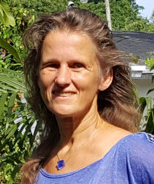
About the Presenter
Silke Dodel is a Visiting Assistant Professor in the Harriet L. Wilkes Honors College. She teaches mathematics, physics, and programming. Her passion is to instill confidence in her students and teach them to sharpen their minds and shoot for the stars. She is also developing artificial intelligence systems for biomedical research. Dr. Dodel has her master’s of education in Mathematics and Physics from Tübingen University and her Ph.D. in Theoretical Physics from Göttingen University.
-
SR-268

Using Photo Essays to Generate Interest and Enthusiasm for Any Topic
Center for Online and Continuing EducationAre you searching for new possibilities for an engaging and relevant assessment within any content area? A photo essay assignment can be an engaging way for students to be actively involved in their own learning success. This session provides a research-based foundation for using a photo essay format for assessments. Examples are provided of student-created narrative assignments and suggestions for guiding your students along this journey. You will be introduced to an easy-to-use and free site for creating this type of assignment.
Objectives
1. Appreciate the power and appeal of narrative photo essays
2. Examine components of an effective photo essay
3. Create a photo essay document
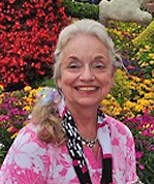
About the Presenter
Judy Somers is an Instructional Designer in the Center for Online and Continuing Education. She has been an Adjunct Professor in the Curriculum, Culture, and Educational Inquiry Department of the College of Education for more than 10 years. Dr. Somers has her bachelor’s degree in Elementary Education, her master’s degree in Education, and her Ph.D. in Curriculum and Instruction, all from Florida Atlantic University.
-
SR-283

The Possibilities of In-Person, Recorded, and
Online Presentations in Hybrid Courses
College of BusinessAs video conferencing continues to proliferate, the already overburdened Business Communications course must address both recorded and real-time video presentations alongside traditional in-person, “face-to-face” presentations. Fortunately, the hybrid or blended classroom encourages numerous possibilities for both video and in-person presenting. This session describes a multiple rehearsal process, with peer feedback and self-evaluation, culminating in both recorded video and in-person presentations. Summaries and examples of student evaluations of the complete process are provided. This process was developed for a Business Communications course, but the same process may be applied to any course that includes oral presentations.
Objectives
1. Understand the advantages/limitations of the in-person, online recorded, and online live presentation modes
2. Learn about the processes and technology involved in multiple rehearsals and presentations
3. Examine student evaluations of the multi-modal, multi-presentation process

About the Presenter
Craig Rinne is an instructor in Business Communications in the College of Business. He has published articles on Clint Eastwood and 1990s Western films, and he has presented on pedagogy involving mobile applications. Dr. Rinne has his bachelor’s in English from Carleton College, his master’s in Communication Studies (Film Studies) from the University of Iowa, and his Ph.D. in English from the University of Florida.
Second Group Sessions | 10:40 - 11:30 a.m.
-
SR-209

The Technology of Academic Cheating
Davie Campus Testing & Evaluation DepartmentCheating on exams is not new; what is new is how students are doing it. A growing number of university students are using high-tech devices such as phones, smart watches, and hidden earpieces to cheat on exams. This session examines how technology has transformed cheating; how educators and administrators can combat cheating in the age of smart technology; and the strategies the FAU testing centers employ to secure exams.
Objectives
1. Explore the variety of high-tech cheating methods
2. Learn how to combat cheating in the classroom
3. Engage in discussions with attendees about their experiences with technology and cheating

About the Presenter
Shireen Lalla is the Associate Director of the Davie Campus Testing & Evaluation Department and Student Academic Programming She oversees all branch campus testing, budgeting, exam scoring, and security policies. She also directs all the student research activities for the FAU Broward Campuses. Dr. Lalla has her bachelor’s degree in Sociology, her master’s degree in Higher Education, her master’s degree in Women’s Studies, and her Ph.D. in Higher Education Administration, all from Florida Atlantic University.
-
SR-258

Cultivating Student Engagement Using Flipgrid
College of Business | Center for Online & Continuing EducationMany perceive the online environment to be one of isolation, consisting largely of disconnected individuals reading content and posting on a discussion board. Flipgrid is an online video discussion platform, available as an LTI within Canvas, that facilitates social interaction with a focus on the content. This presentation provides an overview of Flipgrid and how it can be utilized in the online environment. What distinguishes Flipgrid from other online learning tools is that it provides a unique approach to class discussion, an alternative for students who don’t like speaking in class, ensuring that all student voices are heard.
Objectives
1. Explore innovative approaches for immersive learning using virtual reality and augmented reality in combination with artificial intelligence
2. Discuss implementation of such approaches
3. Examine the possibility of interdisciplinary courses with pieces of technology components that students learn to build or improve that provide the immersive learning experience

About the Presenters
Nancy Shehadeh is an Adjunct Professor in the Master of Health Administration Program in the Executive Education program in the College of Business. She is faculty liaison, working with instructors teaching for the first time in Executive Education. Dr. Shehadeh has her bachelor’s degree in Health Services Administration from Florida Atlantic University and her master's degree and her Ph.D., both in Public Health, from Florida International University.

Judy Somers is an Instructional Designer in the Center for Online and Continuing Education. She has been an Adjunct Professor in the Curriculum, Culture, and Educational Inquiry Department of the College of Education for more than 10 years. Dr. Somers has her bachelor’s degree in Elementary Education, her master’s degree in Education, and her Ph.D. in Curriculum and Instruction, all from Florida Atlantic University.
-
SR-268

Any Questions? Using Student-Produced Lessons Presented through Mediasite
College of BusinessThe changes that have occurred across virtually all major social networks, including Facebook, Snapchat, Instagram, and Twitter, underscore the impact of visual content. At the same time, videos have become powerful tools that should be utilized for higher learning, given that students have demonstrated their affinity in media participation. This presentation analyzes how student-prepared videos provide learning objectives and lessons designed to improve student learning, reduce lesson confusion, practice nonverbal and verbal speech delivery skills, and ultimately improve peer group learning and shared responsibility for required skills completion.
Objectives
1. Examine the improved student learning experience through peer-to-peer “teaching”
2. Evaluate presentation skills and other learning objectives via video
3. Understand the value of a depository of student-created videos for specific assignments and learning objectives
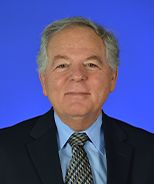
About the Presenter
George Grunfeld teaches Business Communications in the College of Business. He has taught English at Palm Beach and Broward State Universities and in Italy, Scandinavia, and the Middle East. He was an adjunct at the College of New Jersey. He has leadership experience at Pine Crest School and Fort Lauderdale, New York City, and New Jersey public schools. He is a former investment banker and licensed series 24, 7, and 63 with NYSE member firm Josephthal Lyon & Ross and with Gilman and Cioccia National Tax and Financial Services (formerly Gilman Ciocia), FINRA member in Boca Raton. He has his B.A. in Education and English Literature, his M.A. in English Literature, his M.S. in Secondary Education, and a Professional Diploma in Educational Leadership, all from Richmond College, City University of New York. He has his Ed.D. in Educational Leadership and Management of Programs from Nova Southeastern University.
Third Group Sessions | 11:40 - 12:10 p.m.
-
SR-209

The Voice of Truth: Using Audio Comments to
Increase Student Engagement and Retention
Dorothy F. Schmidt College of Arts & LettersFirst-generation or under-prepared students coming into university classrooms for the first time typically have difficulty understanding how to apply instructor feedback provided for their writing. One of the best ways to provide this kind of feedback is by recording audio comments as feedback on assignments. Providing feedback in this way can increase student engagement with the learning process, build stronger connections between faculty and students, better communicate content to students who struggle with processing complex writing, and build opportunities for instructors to explain concepts and expectations that are often difficult to convey in writing, due to length and time restrictions.
Objectives
1. Learn about pedagogical research on how students process feedback
2. Understand how audio commenting is used in composition and literature classes
3. Assess the potential for applying audio commenting across disciplines

About the Presenter
Andrew Gothard is an English Instructor in the Dorothy F. Schmidt College of Arts & Letters. His research focuses on labor and working-class studies. Much of his pedagogy centers on finding better ways to reach and educate under-prepared and first-generation university students. He has his bachelor’s and master’s degrees in English from the University of Alabama–Birmingham and his Ph.D. from the University of Miami.
-
SR-258

Teaching Technology-Driven Art with Technology
Harriet L. Wilkes Honors CollegeThis session explores the use of computer programming in an art context. The presentation begins with a brief overview of the technological tools and art techniques used to facilitate teaching. The focus is on the potential of combining art and computer code.
Objectives
1. Explore the potential of combining art and computer code
2. Learn about technological tools and art techniques used to facilitate the teaching of art
3. Understand the value of open-ended creative technology challenges that require critical thinking and technical skill
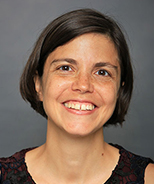
About the Presenter
Annina Rüst is an artist-technologist. She is an Associate Professor in the Harriet L. Wilkes Honors College, where she teaches programming, game development, electronics, data visualization, and digital fabrication. Her electronics and software-based media art often focuses on political issues within tech culture, including gender representation and online privacy. Ms. Rüst’s work has been reviewed in such publications as Wired and the New York Times Magazine. The Huffington Post called her recent robotics work a “Badass Feminist Robot.” In addition to creating and exhibiting technology-driven art, Ms. Rüst writes scholarly articles that contextualize her own work and the work of others. She has a diploma from the Zürich University of the Arts; her MFA from the University of California, San Diego; and her master’s degree from the Massachusetts Institute of Technology Media Lab.
-
SR-268

Using the Canvas Calendar to Optimize Organization
Christine E. Lynn College of NursingThe Canvas learning management system has tools that extend outside the classroom to enrich the entire university experience. This presentation focuses on the Canvas calendar and how it facilitates organization for students and faculty at the university, college, classroom, and personal levels. The presenter uses her own Canvas site calendar to demonstrate the various calendar functions and how to best optimize their use.
Objectives
1. Find out about the multiple facets of the Canvas calendar
2. Demonstrate application of the calendar function within a Canvas course
3. Learn tips and tricks to navigate and apply the calendar functions

About the Presenter
Cindy Blum is an Associate Professor in the Christine E. Lynn College of Nursing. She has used technology in teaching at FAU through several iterations of eCollege, Blackboard, and Canvas. She was a recipient of the 2019 FAU Leadership Award for excellence in eLearning and has participated in a CeL PD_SUPERHEROES-Excellence Award Panel. Dr. Blum has her B.S.N. from Towson State University, her M.S.N. from the University of Miami, her Ph.D. from Florida Atlantic University, and her Post-Master’s Certificate in Nursing Education from the University of Central Florida.
-
SR-283

Research-Driven Instruction through HyperDocs
A.D. Henderson University School and FAU High SchoolRedesign your classroom instruction using HyperDocs to help students make their thinking visible and allow them to share their work. The presenters show how they piloted and used HyperDocs in Google Infused Classroom and how this led to notable student growth and personalized learning. Learn how to begin this process in your classroom and use this innovative tool across grade levels and even in college classes.
Objectives
1. Learn how to create HyperDocs for a multitude of content areas
2. Understand how HyperDocs allows for students to be independent and work at their own pace
3. Discuss how using HyperDocs engages students and enriches critical content in subject areas
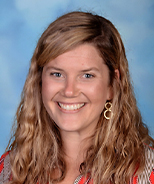
About the Presenters
Rebecca Kasten teaches third grade at A.D. Henderson University School. She has been teaching third grade for seven years and uses technology in all her lessons to engage students. Ms. Kasten has her bachelor’s degree in Elementary Education and her master’s degree in Special Education, both from the University of Florida. She is a Level 1 Google Certified Educator and uses the Google platform in her classroom daily.

Megan Foster teaches third grade at A.D. Henderson University School. She has been teaching for nine years in both primary and intermediate grades. Ms. Foster has her bachelor’s degree in Elementary Education and her master’s degree in Reading, both from the University of South Florida. Ms. Foster uses technology in all her lessons throughout the day to engage students and activate their critical knowledge skills. She is a Level 1 and 2 Google Certified Educator who uses the Google platform throughout her daily instruction.
Lunch & Awards Ceremony
-
SR-149
Lunch & Raffle
Office of Information Technology -
SR-149
2020 FAU Excellence in eLearning Awards
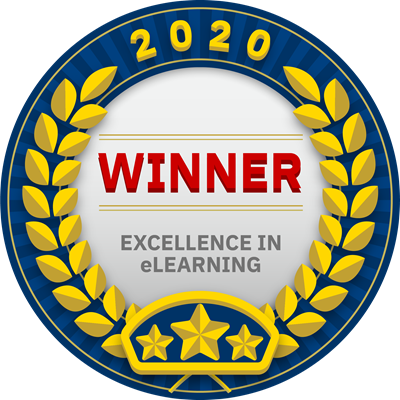 Center for Online and Continuing Education
Center for Online and Continuing Education
The annual FAU Excellence in eLearning Awards event celebrates the outstanding Florida Atlantic University faculty and administrators dedicated to innovation, student success, and faculty development in online education. The eLearning Awards have raised awareness of the FAU eLearning Community of Practice since 2016. Dr. Julie Golden, Executive Director for Online and Continuing Education, will present the 2020 Excellence in eLearning Award winners in the following categories: Adjunct Faculty, Full-Time Faculty, and Leadership Award. For more information about previous awards, click here.

About the Presenter
Julie Golden Botti serves as Executive Director for Online and Continuing Education in the Office of the Provost. In this newly-established role, Dr. Golden Botti oversees the university’s efforts to create and enhance online courses and programs, lifelong learning offerings, and continuing education programs. She oversees the Osher Lifelong Learning Institutes in Jupiter, Boca Raton, and Fort Lauderdale. Additionally, she supports professional development opportunities to promote high-quality academic programs.